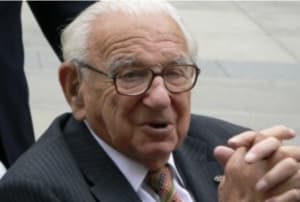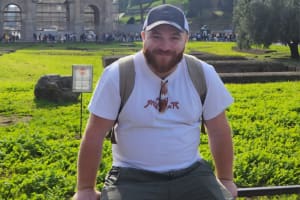Hundreds support German Jewish community after synagogue arson attack

Hundreds of people displayed solidarity with the Jewish community in the German city of Oldenburg, after an arson attack on a local synagogue on Friday.
Unidentified individuals reportedly threw an incendiary device at the synagogue’s doors. Firefighters quickly extinguished the flames, and no one was injured.
“I condemn this act in the strongest possible terms. Attacks on synagogues are attacks on all of us,” said Oldenburg’s mayor, Jürgen Krogmann. “We will not accept that a Jewish institution in our city has become the target of an attack.”
The mayor also labeled the incident as “terrorism” and “attempted murder.” He further vowed to boost security and fight against antisemitism and racism.
Claire Schaub-Moore, a representative of the Oldenburg Jewish Community, thanked local residents and the mayor for their support. “This strength is much greater than what happened in front of our synagogue,” she said.
According to the municipality, over 550 people rallied in Oldenburg on Sunday.
Federal Interior Minister, Nancy Faeser, also blasted the attack as “disgusting” and “inhumane.”
“My thoughts and my solidarity are with the Jewish community,” Faeser said. “The perpetrators must be identified and held accountable.”
Dr. Josef Schuster, president of the Central Council of Jews in Germany, stressed that Jews were no longer outcasts in the country: “We will not let ourselves be defeated. Jewish life is part of our country, of Germany.”
As in many Western societies, antisemitic incidents have increased dramatically since Hamas launched its aggression against Israel on Oct. 7. Radical individuals with a Muslim migrant background have played a disproportionate role in the spread of Jew-hatred across Germany and other democracies.
In late March, Faeser announced Germany would include questions on the Holocaust, Jewish religion and Israel, in the country’s citizenship test.
“Antisemitism, racism and other forms of contempt for humanity rule out naturalization,” Faeser said in an interview with Der Spiegel.
“Whoever does not share our values, cannot receive a German passport. We have drawn a crystal-clear red line,” she added.
Furthermore, the minister argued that because of the Holocaust, Germany had a special responsibility for protecting Jews and supporting Israel.
“Germany's crime against humanity in the Holocaust entails our special responsibility for the protection of Jews and for the protection of the State of Israel,” Faeser said. “This responsibility is part of our identity today.”
The Jewish community in Oldenburg was established in the 14th century. During the Holocaust, most of the Jewish community members were either murdered or fled. However, smaller numbers of Jews have returned to the multicultural city, where around 25% of the population has an immigrant background.
In the post-Holocaust era, Germany has emerged as one of Israel’s closest allies in the European Union. In the 1990s, Germany absorbed a large number of Soviet Jews. In 2023, the German Jewish community numbered around 118, 000 people, making it one of the largest Jewish communities in Europe. The capital, Berlin, has attracted thousands of Israeli expats.

The All Israel News Staff is a team of journalists in Israel.
You might also like to read this:

















